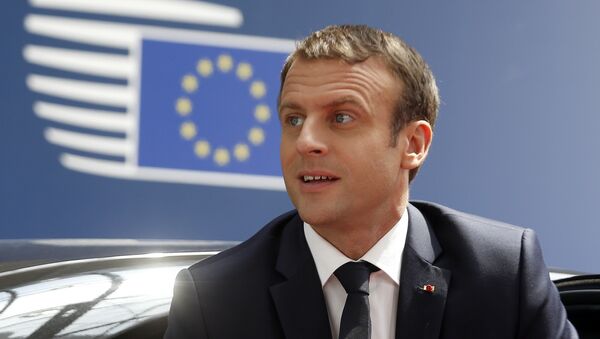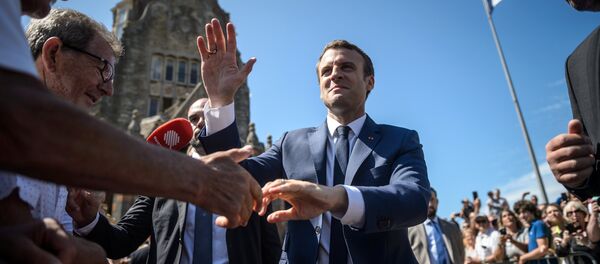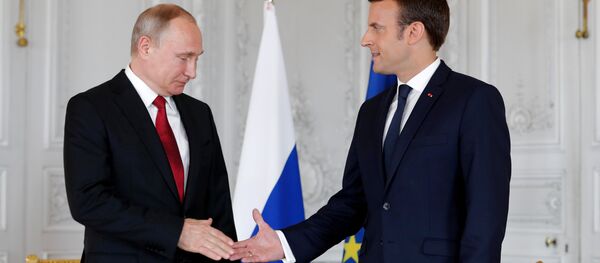In an interview with several European newspapers on Wednesday, French President Emmanuel Macron said that the removal of Syrian President Bashar Assad is not a priority for the new French government, which is above all concerned with eliminating terrorist groups.
"I'm not saying that the departure of Assad should be a prerequisite, since I do not see who could become his legitimate successor," Macron said.
"My positions are clear: the first is an unconditioned struggle against terrorist groups. They are our enemies … We need to cooperate with everyone, especially with Russia, to eradicate them."
"Secondly, the stability of Syria, because I don't want a failed state," the French President said.
Xavier Moreau, a French expert on international relations, told Radio Sputnik that Macron's comments represent a "very positive change" in French policy.
"I think it's a continuation of what happened when he met with Vladimir Putin some weeks ago. He said that the 'red line' is chemical weapons, but that concerns not only Assad forces but ISIS (Daesh) or any Islamist forces as well."
"France is involved in the US coalition, so it won't be so easy to directly cooperate with Russia. But you have to remember, after the Paris terror attack two years ago Russia and France were ready to cooperate, so maybe we will see more cooperation," Moreau said.
Macron also expressed opposition to the neoconservative ideology that has driven French foreign policy under Hollande and his predecessor Nicolas Sarkozy, who played a key role in the disastrous Libyan intervention.
"For the last ten years, French foreign policy was committed to neoconservative ideology. Neoconservative means war, so it's very good news. He also said that he was against the war in Libya, that it was a mistake, so we can be a little bit more confident than we used to be."
"We have to remember that when the Berlin Wall fell, Macron was 12 years old, so he doesn't know what all this Cold War ideology is, he was too young to have such ideology."
"Now it will be very important to see who his advisor will be. His diplomatic advisor Philippe Etienne is known as a moderate and not an anti-Russian man, so let's see if he will work with the same neoconservative think tank or advisors as Hollande or Sarkozy did. Globally, I think it's a very positive development."
"In my opinion, Macron knows, as Trump does, that it's not the Assad regime which uses chemical weapons. Chemical weapons aren't just used for fighting, it's efficient against the Syrian people, but Bashar Assad has no interest in killing civilians. So, I think Macron has to give a sign to the electorate and especially to the French elite who supported him that he is ready to fight Bashar Assad, violence, power and so on. I don't think these declarations are very important," Moreau said.
Macron's stance on Assad may soon be echoed by other European leaders, who are keen to reach a resolution to the war in Syria. The battlegrounds of Syria have been training grounds for terrorists who later attacked Europe and the continent has been overwhelmed with hundreds of thousands of Syrian refugees, just some of the 5.1 million who fled the country since the conflict began six years ago.
"All the European leaders are tired of this war in Syria and they know perfectly that it's a source of terrorism as we have seen from terrorist attacks in France, Germany and the UK. So, we have to find a solution and it's time not to listen to the neoconservative ideology anymore."




